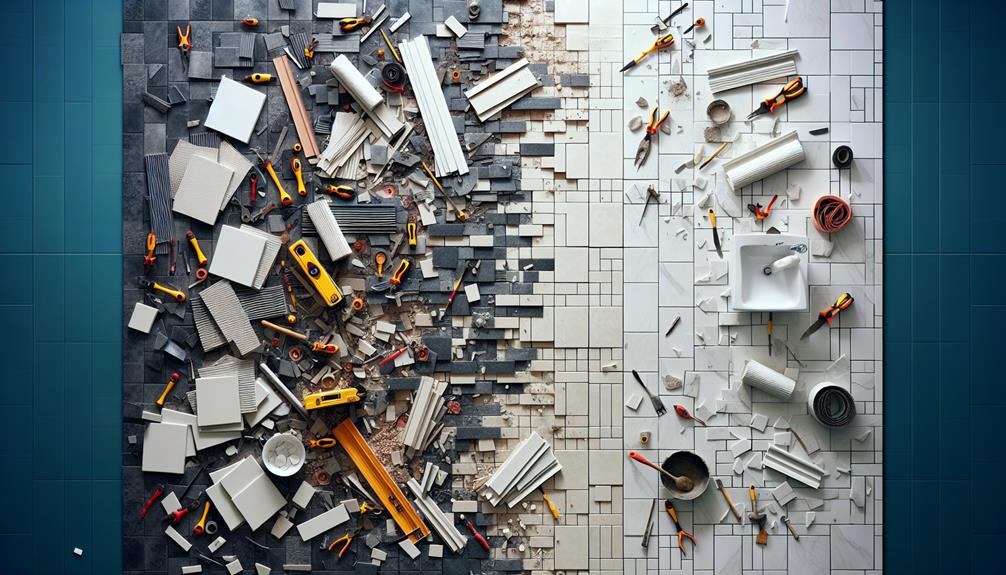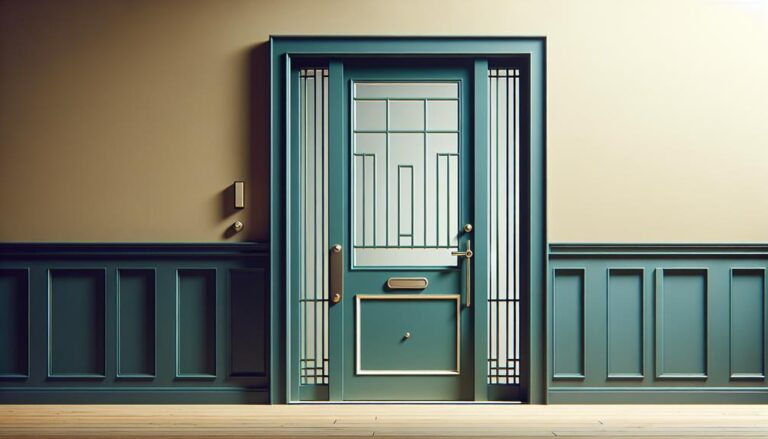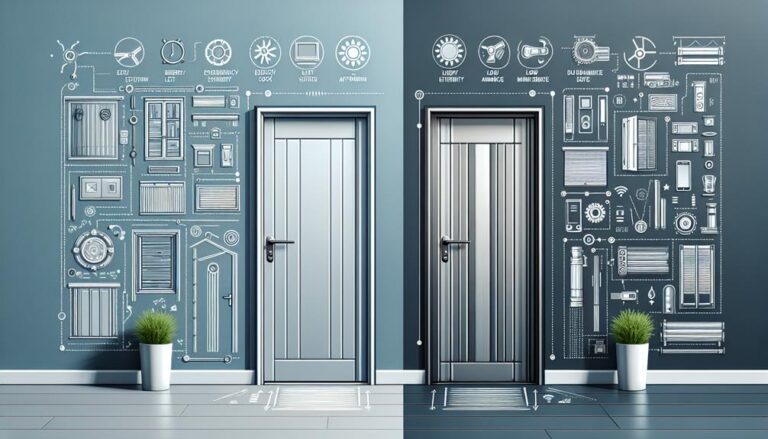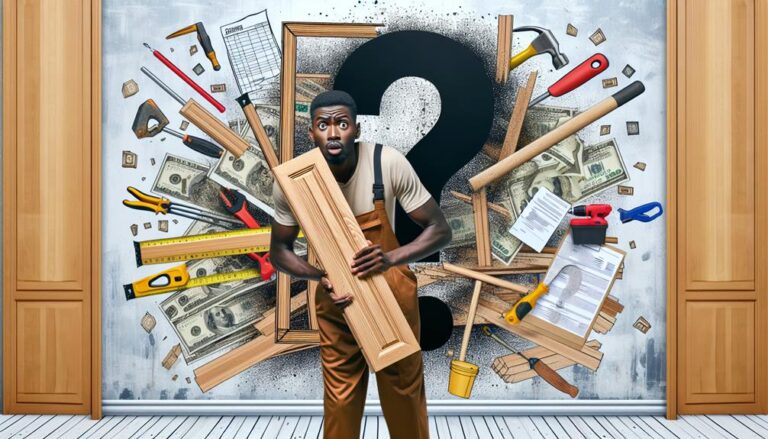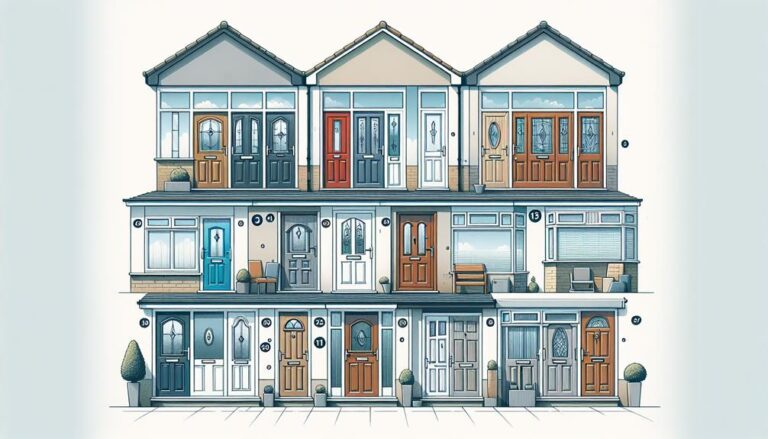DIY Vs. Professional Installation: Is It Worth Saving on Labor Costs?
When deciding between DIY and professional installation, it’s like navigating a maze with hidden paths and unknown outcomes.
The choice hinges on more than just saving money. Consider the trade-offs between costs and results, the balance between autonomy and expertise.
As you stand at this crossroads, ponder the implications of your decision.
Cost Comparison: DIY Vs. Professional Installation
When considering labor costs, opting for DIY installation over hiring professionals can lead to significant savings of up to 50%. DIY projects empower you to take control of the installation process, cutting down on labor expenses that would otherwise go to professional services. By investing your time and effort, you can allocate those savings to other aspects of your project or even expand your renovation plans.
While DIY installation might save you money, it’s important to acknowledge that it comes with its own set of challenges. You’ll need to purchase the necessary tools and equipment, which can add to the initial cost. Additionally, without the expertise of professionals, you may encounter difficulties during the installation process that could potentially lead to mistakes or rework.
Before making a decision, carefully evaluate the project’s complexity and your skill level. While DIY installation can be cost-effective, professional services offer guarantees, quality workmanship, and peace of mind that may outweigh the initial savings in the long run.
Factors Impacting Labor Cost Savings
Skill level and experience significantly influence the amount you can save on labor costs when deciding between DIY and professional installation for home improvement projects. Professionals often command higher pay due to their expertise, impacting overall labor cost savings.
For instance, DIY window fitting can lead to savings of up to 50% compared to hiring professionals. The complexity of a project also plays a role, with intricate installations requiring more skilled labor and potentially reducing cost savings achievable through DIY.
The quality of labor and precision in fitting further affect the overall cost comparison between DIY and professional installations. Geographical location is another factor to consider, as urban areas may offer more competitive pricing for professional services, influencing the total labor costs involved.
Considering these factors can help you assess the potential savings and make an informed decision on whether to opt for a DIY approach or hire professionals for your home improvement projects.
Skill Level and Labor Costs
Having the necessary skills and tools can lead to significant savings of up to 50% on labor costs with a DIY installation compared to hiring professionals. Professional installation typically demands higher levels of skill and knowledge to ensure proper execution, which contributes to their higher labor costs.
DIY projects can be cost-effective if homeowners possess the required expertise; however, inexperienced individuals may end up spending more due to mistakes and rework. Professional installers have access to specialized tools and expertise, further justifying their higher labor costs.
The skill level needed for installation significantly impacts the overall labor costs involved in the project. Therefore, when considering whether to opt for a DIY approach or hire professionals, it’s essential to evaluate your own skills and capabilities to determine the potential cost savings or risks associated with each option.
Time Efficiency in Installation
Considering the efficiency of time in installations, the experience and proficiency of professional installers often lead to quicker completion compared to DIY projects. Professionals have honed their skills through training and practice, allowing them to work more swiftly and efficiently. On the other hand, DIY installations may require homeowners to invest time in researching, troubleshooting, and learning, which can significantly slow down the process.
Here are some key points to keep in mind regarding time efficiency in installations:
- Professional expertise: Professionals are adept at handling various installation tasks quickly.
- Complex projects: Professionals can tackle complex projects swiftly, reducing installation time.
- Delays and setbacks: DIY projects may encounter delays and setbacks, prolonging the overall duration.
- Efficient workflow: Professionals have a streamlined workflow that enhances time efficiency.
- Significant factor: Time efficiency plays a crucial role in determining the most suitable installation method for your needs.
When time is of the essence, opting for professional installation can often save you valuable hours and ensure a prompt completion of the project.
Quality and Longevity Considerations
Ensuring quality and longevity in your installation project is paramount for lasting satisfaction and peace of mind. When opting for professional installation, you benefit from the expertise and skill of experienced installers, ensuring top-notch workmanship that can withstand the test of time.
Professionals use quality materials and employ proper installation techniques, contributing to the longevity of the project. Additionally, they offer warranties and insurance coverage, providing added protection and assurance. In contrast, DIY installations may lack the necessary expertise, leading to potential issues with durability and fitting.
Considering longevity is crucial not only for your immediate satisfaction but also for long-term benefits such as maintaining or even increasing property value. By hiring professionals, you can rest assured that your installation meets regulations and standards, further enhancing the longevity and quality of the project.
Conclusion
In conclusion, when deciding between DIY and professional installation for windows, it ultimately comes down to weighing the trade-offs between saving on labor costs and ensuring quality results.
While DIY may offer cost savings and a sense of autonomy, professional installation guarantees quality work and warranty protection.
Consider your skills, budget, and project complexity to determine the best approach for your window installation needs.
Frequently Asked Questions
Can DIY Installation Void the Warranty on Certain Products or Appliances?
When installing products or appliances, remember that DIY installation might void the warranty. Always check the manufacturer’s guidelines to ensure your warranty remains intact. It’s crucial to follow the recommended installation procedures for protection.
Are There Any Safety Risks Associated With DIY Installation That Should Be Considered?
Consider potential safety risks with DIY installations: improper wiring can lead to electrical hazards, poor structural assembly could cause collapses, and incorrect installations might create fire risks. Prioritize safety when deciding on DIY or professional help.
How Can DIY Installation Impact the Resale Value of a Home?
When you opt for DIY installation, potential buyers may question the quality and reliability of work done. Poorly executed installations can lower your home’s resale value. Consider professional help for a higher resale price.
Are There Any Hidden Costs or Unexpected Expenses That Can Arise From DIY Installation?
When considering DIY installation, be aware of potential hidden costs like incorrect tools or materials, mistakes that require professional fixes, and voided warranties. These unexpected expenses can quickly surpass the initial savings.
What Are Some Common Mistakes or Pitfalls to Avoid When Attempting DIY Installation?
When attempting DIY installation, avoid rushing through steps, neglecting proper tools or materials, ignoring instructions, and overlooking safety precautions. Take your time, follow guidelines closely, and ask for help when needed to ensure a successful project.

